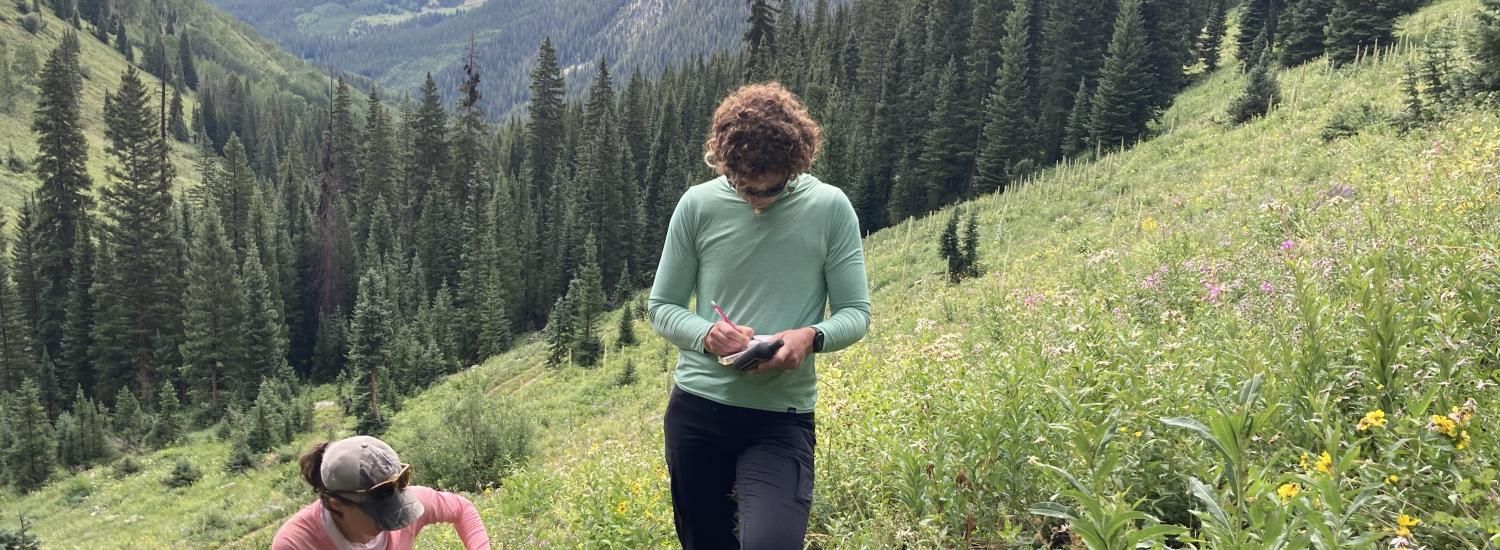Eve Hinckley joins CIRES Council of Fellows
CU Boulder scientist connects ecosystem and agricultural science to solutions on the ground

CIRES welcomes ecosystem biogeochemist Eve-Lyn Hinckley, who joins the CIRES Council of Fellows Friday. Hinckley’s research explores how humans fundamentally change biogeochemical and water cycles, with an emphasis on pesticide and fertilizer use in agriculture. Her work spans multiple sectors—from taking detailed measurements in the field and lab, to working directly with farmers and policy makers to inspire meaningful regulatory change.
“There are a lot of things I feel like I need to do on the other side of the lab bench,” Hinckley said. “Throughout my career I’ve been motivated to work directly with decision makers, from local to state level and beyond—taking my science out of the lab to speak with land managers, farmers, state regulators and policy makers.”
Her work aims to inspire solutions that benefit economic goals and minimize environmental impact—probing not only the role of humans in changing ecosystems and nutrient and water cycles, but also our role in managing and sustaining them.
Hailing from New England, Hinckley received her B.A. from Middlebury College in Vermont, then went on to California to receive her Ph.D. from Stanford University. In 2009, she ventured to Colorado for a postdoctoral fellowship at CU Boulder’s Institute of Arctic and Alpine Research (INSTAAR), followed by four years as a staff scientist at the National Ecological Observatory Network.
Beginning July 1, Hinckley is joining CIRES from INSTAAR, where she worked for the last six years. She’s also switching CU Boulder departments—moving from the Environmental Studies to Ecology and Evolutionary Biology (EBIO).
“CIRES matches the broad scale of my group’s work: we do research at very local scales, like detailed biogeochemistry in the lab, but we also do big analyses that look at trends in how agricultural systems are changing at regional scales,” said Hinckley. “In my time at CU, I have developed collaborations with CIRES scientists. I’m excited to be co-located with them.”
One of those collaborations is with CIRES Fellow and EBIO Professor Noah Fierer. "Eve and her group are a wonderful addition to CIRES. From vineyards in California to the mountain ecosystems of Colorado, they bring an integrative approach to understanding human impacts on the environment,” said Fierer. Hinckley has also collaborated with CIRES Fellow Greg Tucker and is excited to collaborate with chemists both at the university and at Boulder’s NOAA laboratories.
During the 2022-2023 school year, Hinckley, a CU Boulder Associate Professor, will teach a two-part undergraduate course in ecosystem ecology. In the Fall, students will hike through Boulder County Open Space and Mountain Parks lands—learning how to make measurements of soils, water, and plant communities, including invasive species. “Then, in the Spring semester we will come back to the classroom. It’s an experimental approach, to dive into the field before hitting the books. I’m excited.” Hinckley will also be advising five Ph.D. students this year.
When she’s not doing research or teaching, you’ll find Hinckley spending time with her family, including her husband, a scientist at NCAR, and her two children, aged 8 and 10, or hiking along Colorado’s Front Range.
For more information on Hinckley’s research group, click here.